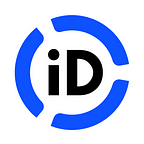globaliD co-founder and CEO Greg Kidd recently participated in an educational panel in SF hosted by Solana on The Future Of Identity Management With Blockchain.
Moderated by Solana co-founder and CEO Anatoly Yakovenko, Greg was joined by panelists Eric Ly (Co-Founder of LinkedIn; Founder of Hub), Jason Law (Co-Founder and CTO of Evernym / Sovrin), and Phillip Shoemaker (Executive Director at Identity.com / Civic).
Here are some highlights from Greg speaking at the event:
On the issue of identity systems being double-edged swords:
The question is what would be a good kind of identity system. If i could write a paper it would be called little brother not big brother. How do you have identity be a helper without being big brother. A concept we have that is very different from how it is in China where they want to have the one name policy where you are one name. The concept [we have] is that you could have multiple names, each of which could be attested to as valid enough to get particular permissions.
On the issue of decentralization and sharing of information on public blockchains:
I’m going to go out on a little bit of a limb here. A lot of folks in the self-sovereign identity world have talked about giving the user permission over the sharing of their private information. Why do we need to share private information? At all? Period. Isn’t there a way to have a zero-knowledge proof that you’ve been attested to by a third party? Instead of sharing and controlling sharing, put the public attestation about the private information on a public ledger. Keep what’s private, private.
On why the problem of identity is about more than just business losses:
There were two Republican accounts for the state of Tennessee. One had ten times as many followers, and of course Trump followed that one and retweeted it. But that was the Russian one. When bad identity means just business as usual and losses, that’s one thing. When it fundamentally undermines the concept of objective information and leads to things like swayed elections, it has to get bad enough for it to get better. Without some concept of getting back to objective understandings of identity, then we’re not in a world where we disagree about how feel and think about the facts, we don’t even know what the facts are because of the information coming from identities we can’t trust. The whole system falls apart.
On the economic potential for digital identity:
This year in the U.S., there were $80 billion in mobile payments. In China, there were $12 trillion done just on AliPay and WeChat Pay. Now, that’s a siloed system, it’s one country. But what they’ve shown is that an identity on your mobile phone and a text messaging app is enough to facilitate $12 trillion in permissioned activities. To me, we live in an exchange society. Doesn’t matter if you’re communist. Doesn’t matter if you’re capitalist. You want to be able to send. You want to be able to convert, move, load, spend money.
On what globaliD will be able to deliver in 2019:
We do like that financial inclusion goal. To me, everyone in the world has both a right and a responsibility to an identity. A lot of people talk about identity as a right. But your identity isn’t any good unless somebody else on the other side accepts that credential. Identity, really, to be useful is the permission to act. So the question is the base, the MVP (minimum viable product) of identity, where we can let everybody have a name and be able to hold value, send it, convert it. Nobody needs identity to go get a Clipper Card to get on the BART. So why don’t we give everybody at least enough identity to get that level of value, get everybody a seat at the table. And I think in 2019, we can have an offering where everybody can get a seat at the table.
A special thanks to Solana and Greg’s fellow panelists — as well as the nearly 200 attendees!
You can watch a video of the full panel here.
